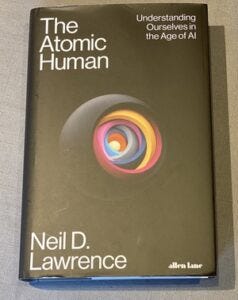Rooms with a view
Albufeira marina, Portugal, in evening sunshine.
Quote of the Day
“Most of our assumptions have outlived their uselessness.”
Marshall McLuhan
Musical alternative to the morning’s radio news
Bach | Wachet auf, ruft uns die Stimme (BWV 645)
First time I’ve heard it played by a brass ensemble.
Long Read of the Day
In the Former Eastern Bloc, they’re terrified of a Trump Presidency
Interesting piece in The New Republic reminds us that people in the former Soviet empire know a thing or two about living under tyranny.
The view the Bulgarian minister and others expressed to me was that a Trump win would result in a redrawing of the map of Europe in ways that would enable and embolden Vladimir Putin while simultaneously weakening the NATO alliance. Indeed, a Trump win would amount to nothing less than an undoing of many of the gains that came to the West through winning the Cold War and of many of the most important achievements forged in the wake of World War II.
This view is based not only on Trump’s public statements and actions while in office and since but also on a European perception of the Russian threat that is much more sweeping and menacing than most Americans and many of our leaders in Washington seem to grasp.
Anne Applebaum, the Pulitzer Prize–winning author who has written extensively on the former Soviet Union and emerging authoritarian threats, told me, “Many Europeans are afraid that a second Trump administration would work together with the Russians and their far-right allies in Europe—both those in power in Hungary and Serbia, as well as those who lead opposition parties in France and Germany—to transform European politics, destroy the European Union, and eventually dismantle NATO as well. That would make it easier for Russia and China to divide and dominate the continent for both economic and political advantage.
“Of course this is not in America’s interest,” she went on, “but Trump does not act in America’s interest.”
Yep. I can’t understand why Europeans are apparently so relaxed (or indifferent) about the risks that lie ahead.
Look before you scan
Yesterday’s Observer column:
Here’s a familiar scenario. You’re going to a meeting in an unfamiliar part of town. You’re running late and it’s raining. And there isn’t a car park in sight. Ah, but here’s some on-street parking and you gratefully pull into the empty bay. Now all you have to do is pay for a couple of hours and then scuttle along to your meeting. But the parking meter (of course) no longer takes coins. This is the 21st century, after all.
No worries – you can pay by phone. There are notices plastered all over the meter on how to pay using an app that – of course – you have not yet downloaded. The rain is getting heavier and there’s no mobile signal. You’re getting increasingly flustered. And then you spot that there’s a Quick Response (QR) code – a nice (if incomprehensible) square with lots of funny squares and spaces – on one side of the meter. Phew! All you have to do is scan it and you’ll be through to a website in no time. So you do and you are. Job done. Relax.
Er, possibly. Or possibly not…
Books, etc.
Neil Lawrence in the middle of a mammoth book-signing after the launch of his book on Thursday evening in Cambridge.
It’s a terrific book, the best on ‘AI’ that I’ve read since Stuart Russell’s book — Human Compatible: AI and the Problem of Control — way back in 2020. Judging from the reaction on Thursday evening, it’ll be the big seller that it deserves to be.
My commonplace booklet
I’m a pragmatist about tech tools. From the beginning, I saw chatbots as akin to spreadsheets. I’m old enough to remember the impact of VisiCalc in 1978. (Indeed, I still have a copy of the original disks in my office, and when ChatGPT broke cover I was immediately reminded of it, because, well…, after VisiCalc nothing was ever the same.) And so I’ve been constantly playing with/using tools like Perplexity, Claude and GPT-4 for the last six months.
Not surprisingly, then, I was intrigued by Google’s new toy NotebookLM — billed as “your personalized AI research assistant powered by Google’s most capable model, Gemini 1.5 Pro”. I had been alerted to it by Steven Johnson, who’s been involved in some way in its development, and whom I take seriously. I’ve uploaded some foundational texts relevant to something I’m writing at the moment, and — to be honest — am a bit surprised by how immediately helpful it has been.
Of course, that just a first impression. But still…






